In a world where we now understand and emphasise the role of shaft and clubhead design and how they influence things like spin, there’s one aspect that can often get overlooked. Arguably the most important factor in affecting your ball flight is the loft of the club head. When looking at our ball flight in a fitting scenario it’s vital that we consider the effects of loft in order to contextualise the numbers such as spin and ball speed that are often prioritised. With launch monitors we can now see in detail the amount of loft that is on the club at impact, this is known as dynamic loft and means that we can truly understand how loft affects us.
A topic where loft is often discussed is in the progression of modern irons and how they are now much stronger than they used to be. Now the common assumption is that companies have just got greedy, labelled up a 6 iron as a 7 iron so they can say they have the longest iron on the market, but this is a reductive assumption. The reason that iron lofts are progressing is that the technology in the head is now much more refined. Control over centre of gravity using better materials and innovative technology means that the CG can be pushed down into the lower portion of the club head, this makes it easier to launch the ball. This technology then allows the iron to have stronger lofts, as it’s the technology in the club head itself that takes care of launching the ball, therefore meaning that a stronger loft will make the ball flight more penetrating, with more ball speed (which also helps reach a higher peak height), and the side effect of that is obviously increased distance but without the loss of stopping power. Blades, however, will still be more traditionally lofted as they have a higher centre of gravity and therefore require more loft to spin the ball and get it airborne.
So clubhead design influences what loft we need, so does the golfer themselves. Now if I put a 31 degree 7 iron in 2 golfers hands, one of them could keep much of the loft on the head when making contact with the ball, the other may take the loft down to 20 degrees, and when you take into account everything else that happens around that it can result in 2 totally different flights, so we need to use loft to work with the golf swing. Deloft the club? Maybe a higher lofted club is for you. Add loft? A stronger club will keep your ball flight more penetrating and stop it stalling in the air. These differences in delivery will have an effect on the ball’s speed (lower lofts produce more ball speed) and the launch and spin, so it’s vital to consider this to optimise our ball flight in every club in our bag.
So before you make your next club purchase, consider this. How do you present loft at impact? And how can you use loft to optimise your game?
Jim Mitchell
Custom Fitting Specialist



